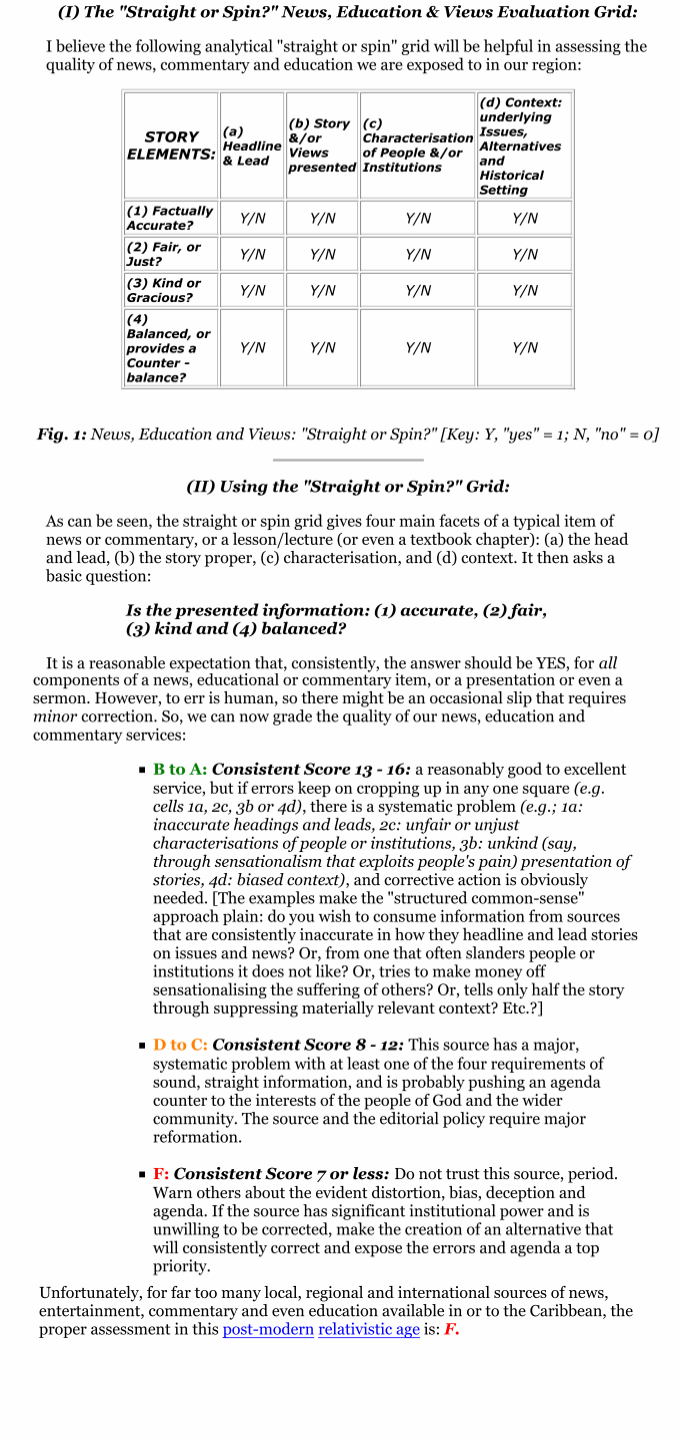By 2012, the longstanding Encyclopedia Britannica had published its last print edition. Microsoft’s Encarta has long since bitten the dust, and so has Collier’s notable effort. Wikipedia, like it or lump it — mostly the latter — seems to have taken over that go-to first source slot. Indeed, for a great many subjects a Wikipedia article will dominate a Google search (or the like), to the point where one gets the impression that if it is not in the top three or so references, that was programmed in by the search engine’s programmers.
And yet, as PJ Media reports, co-founder and original author of Wikipedia’s “neutral point of view [NPOV]” policy, Larry Sanger has gone on record, regarding Wiki’s entrenched deceit towards and defamation of ID:
>>”As the originator of and the first person to elaborate Wikipedia’s neutrality policy, and as an agnostic who believes intelligent design to be completely wrong, I just have to say that this article is appallingly biased,” Sanger wrote. “It simply cannot be defended as neutral.”
“I completely despair of persuading Wikipedians of the error of their ways. I’m just officially registering my protest,” the co-founder declared.>>
Sanger, of course, long since walked away from Wikipedia.
Going on, PJ Media observed, on an all- too- familiar edit pattern:
>>So who is behind the Wikipedia bias against ID? The revision history for the entry proved quite revealing.
PaleoNeonate, a self-described “agnostic with naturalist pantheistic tendencies, who has long ceased to believe in the supernatural,” proved quite vigilant in preventing any change to the ID page. On October 27 at 6:41 p.m., a user removed the word “religious” from the entry calling ID a “religious argument.” At 6:43 p.m., PaleoNeonate put “religious” right back in.>>
DI’s David Klinghoffer adds:
>>As soon as it’s a subject that gets people riled — specifically, the sociological slice with enough time on their hands to monitor Wiki articles around the clock — then you know you can’t trust what they say. Conversely, the less anyone cares, the more you can trust this ubiquitous information source.>>
But of course, it is hard to tell whether such a termite lurks in a seemingly solid piece of furniture.
Now, too, from the viewpoint of say a UK-style approach to defamation, the root problem isn’t really Wikipedia. It’s just yet another case in point of the notoriously broken state of American law on defamation. If Wiki’s core leadership and more activist basement lurkers were to face accountability before the courts with fines and court orders to pay the costs to bring them to book in prospect, we would doubtless see a very different approach.
Indeed, a recent case in Trinidad regarding defamation by Facebook is quite revealing:
>>Delivering a 18-page judgment in a landmark case, brought by a couple whose neighbour falsely accused them of sexually abusing their children in a series of Facebook posts, High Court Judge Frank Seepersad considered social media cases in Commonwealth jurisdictions to develop a local [common law-based] position on the issue as there are currently no laws which directly address it . . . .
While Seepersad noted that local laws only contemplate libel as printed or written words on traditional formats, he said it should be interpreted to include statements on social media platforms . . . . “Social media ought not to be viewed as an unregulated media forum and anyone who elects to express views or opinions on such a forum stands in the shoes of a journalist and must be subjected to the standards of responsible journalism which govern traditional media,” he said.
Seepersad said users would be held accountable if they make defamatory posts on their accounts themselves, if they give third parties permission to make the posts and in circumstances where defamatory posts are uploaded by unknown parties and are not removed within a reasonable time. [–> that is, he applied the Editorial responsibility standard.]>>
Talk about the proverbial “whiff of grapeshot” as a cure for rioting!
But, is the “cure” worse than the disease?
In all fairness, there are obvious, reasonable duties of care to truth, logic, fairness, innocent reputation and more. These are routinely flouted by the willfully malicious and by those who delight in inventing or spreading information that puts others in a bad light. Such is corrosive to community life. But at the same time, freedom of conscience, inquiry, expression, assembly and association must be guarded. Where, sometimes, painful and unwelcome truth needs to be spoken.
So, how do we strike a balance?
First, by heeding the reasonable, responsible person standard.
For instance, here is how I put it fourteen years back for a local talk show:
 Obviously, Wiki fails the test, it is clearly a class-F information/media source on topics of any serious significance. It is in important regards, a misinformation, manipulation and fake news site. It should be filtered out and marked as suspect by search engines and browsers etc.
Obviously, Wiki fails the test, it is clearly a class-F information/media source on topics of any serious significance. It is in important regards, a misinformation, manipulation and fake news site. It should be filtered out and marked as suspect by search engines and browsers etc.
So, it is unsurprising that various alternatives have been created; with varying degrees of fairly minor success.
Obviously, defamation law in the USA is unlikely to be reformed anytime soon, too.
So, the answer is to red-line Wikipedia and the like, exposing them sufficiently that their loss of credibility will be a sobering lesson. Part of that is to cite them (if at all) as a lowest common denominator suspect view source illustrating what we have to be better than.
And, we need to build more responsible alternatives. END